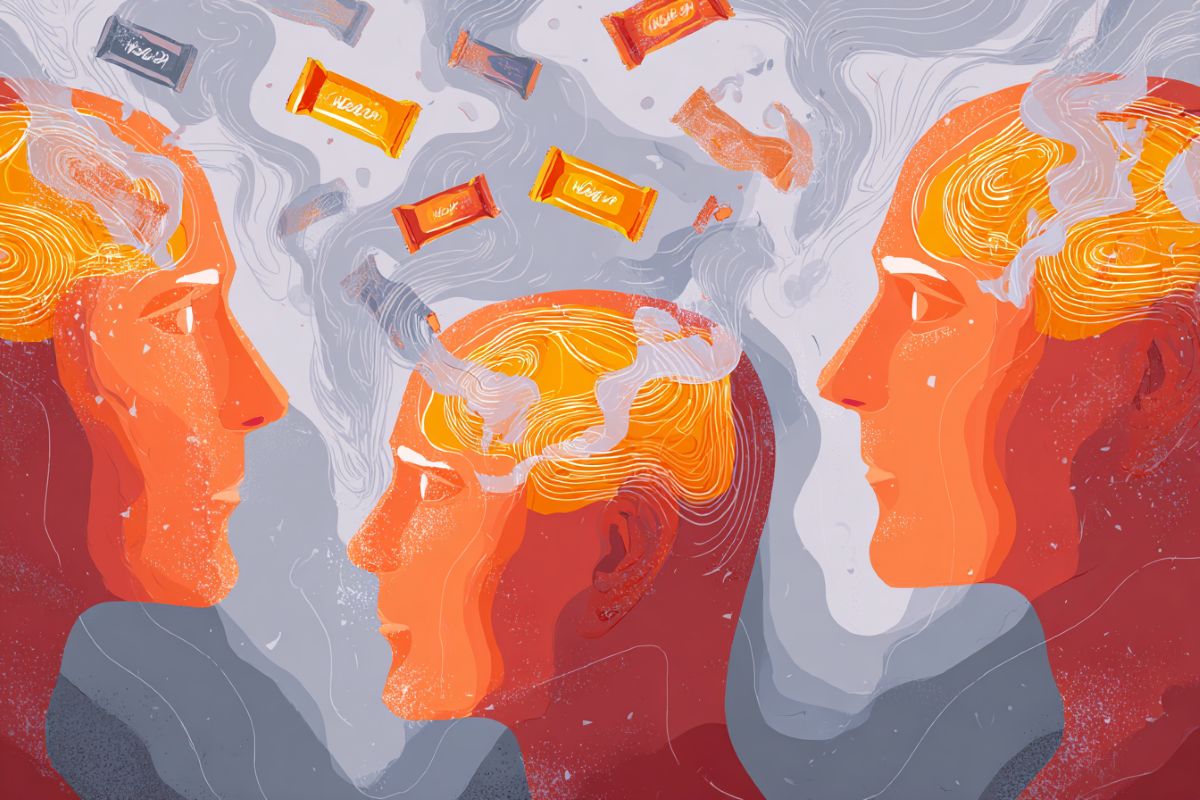Summary: New research shows that the same dopamine receptor mechanism responsible for drug addiction also governs the natural decline in motivation when we repeat rewarding behaviors. By studying male fruit flies, researchers found that dopamine acting through the D2 receptor promotes persistence during mating, but repeated experiences cause these receptors to desensitize.
Once desensitized, dopamine becomes less effective, and males abandon mating more easily when faced with distractions or threats. This reveals the first natural function of a mechanism long associated with addiction, suggesting a shared biological basis for boredom, fatigue, and declining interest in repeated activities.
Key Facts
- Natural Desensitization: Repeated rewarding behaviors trigger D2 dopamine receptor desensitization, reducing motivation.
- Shared Addiction Mechanism: The same receptor process behind drug tolerance also drives everyday loss of interest.
- Motivational Fatigue: The findings offer a biological explanation for why repeated thrills or activities become less engaging over time.
Source: Boston Children’s Hospital
Our brain’s reward system processes and reinforces pleasurable experiences, motivating us to seek out and engage in rewarding activities ranging from eating to social interactions to recreational drug use. Dopamine plays an important role in this process, mediated by the D2 dopamine receptor (D2R).
New research published today in Nature Neuroscience finds that the same mechanism that causes drug addiction (desensitization of D2R) also controls the natural devaluation of repeated behaviors (e.g. seeking out the same thrill of going on a rollercoaster for the first time).
This is the first natural use found for this mechanism.
Researchers from Boston Children’s Hospital used male fruit flies to study behavior fatigue. They found that during mating, dopamine signaled through the D2R to promote resilience in the face of threats that might otherwise cause the male to switch behaviors.
However, after multiple matings, the receptors became desensitized, making dopamine less effective and subsequent matings more likely to be abandoned when challenged.
“Our findings suggest that this type of repetition-induced devaluation may underlie many types of commonly experienced mental and motivational fatigue (e.g., loss of interest),” said Michael Crickmore, PhD, from the F.M. Kirby Neurobiology Center at Boston Children’s Hospital and principal investigator of the study.
“Drug addiction causes desensitization throughout the brain and, as a result, devalues all innately rewarding behaviors. Our findings suggest that localized dopamine release desensitizes local circuitry, causing the brain to devalue a specific behavior.”
Clinicians and researchers have long known that the desensitization of the D2R is the reason why it takes more and more drug to achieve the same effect within the context of addiction. However, up to now there was no evidence that this mechanism influences natural motivational behaviors.
“The demonstration of D2R desensitization in response to naturally released dopamine links this pathological mechanism to the natural ebb and flow of our individual drives. Better understanding of this mechanism could lead to new hypotheses for motivational control and how it becomes corrupted in addiction,” added Crickmore.
Key Questions Answered:
A: Desensitization of the D2 dopamine receptor reduces the impact of dopamine over time.
A: They studied repeated mating behavior in male fruit flies and how dopamine signaling changed across trials.
A: The same D2R desensitization underlying drug tolerance also naturally drives loss of interest in repeated activities.
Editorial Notes:
- This article was edited by a Neuroscience News editor.
- Journal paper reviewed in full.
- Additional context added by our staff.
About this dopamine and motivation research news
Author: Joelle Zaslow
Source: Boston Children’s Hospital
Contact: Joelle Zaslow – Boston Children’s Hospital
Image: The image is credited to Neuroscience News
Original Research: Closed access.
“Behavioral devaluation by local resistance to dopamine” by Michael Crickmore et al. Nature Neuroscience
Abstract
Behavioral devaluation by local resistance to dopamine
Repeated experiences can cause behavior-specific fatigue. We use Drosophila to study this common form of motivational change, finding that prior matings make males more likely to abandon future copulations when challenged.
Here we show that, during mating, dopamine signals through the D2-like receptor (D2R) to promote resilience to challenges that might otherwise cause the male to switch behaviors.
This motivating dopamine signal suppresses the output of the copulation decision neurons (CDNs), which can truncate matings when pushed past threshold.
Repetition-induced devaluation of mating results from β-arrestin-dependent desensitization of the D2R on the CDNs, rendering them temporarily resistant to naturally released or experimentally supplied dopamine.
When local desensitization to dopamine is prevented, the male shows no signs of fatigue, treating each mating as if it were his first.
These findings explain a widespread motivational phenomenon and reveal a natural function for the notorious susceptibility of the D2R to drug-induced desensitization.







